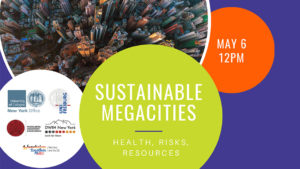Datum und Uhrzeit
06.05.2021, 12:00 - 13:00 Uhr
Kategorien

As urbanization is speeding up, resources are depleting. Join us May 6 to hear new visions for the world’s growing “megacities.”
According to a 2018 report by the United Nations, the world is projected to have 43 megacities with more than 10 million inhabitants by 2030[1]. They are centers of growth and magnets for migrants as they provide better infrastructure, supplies and access to education and healthcare.
On one hand, the management of disease, risk, and economic development poses challenges. As we see in the megacities of Asia, urbanization fundamentally changes societies and landscapes, but its impact is only partly understood. On the other hand, due to their density and creative potential, megacities might hold our answers to climate adaptation. With the circular economy in the spotlight of political and business agendas, cities are starting to discuss and plan new strategies that could help them achieve sustainable resource use.
Please join us for the finale of our series “Sustainable Megacities: Health, Risks, Resources” on May 6, 2021 at 12:00 EDT. In this one-hour talk show, our experts will discuss incorporating circular strategies for resource use and their role in achieving healthier, more sustainable cities.
What kind of strategies are possible? Can they actually contribute to achieving the Sustainable Development Goals? How can cities prioritize different strategies to achieve healthier living conditions for urban populations? Learn with us.
Registration coming soon.
About our experts:
Anna Petit-Boix holds a PhD in Environmental Science and Technology (Autonomous University of Barcelona, 2017). Her research field is industrial ecology, with a focus on the environmental assessment of innovative strategies applied in cities. Her PhD thesis addressed the environmental impacts and benefits of sanitation and flood management practices at the urban scale, providing quantitative data on several environmental indicators (e.g. carbon footprint) to be used in decision-making processes. Since 2017, she is a postdoctoral researcher at the Chair of Societal Transition and Circular Economy at the University of Freiburg, Germany. As a member of the Circulus research group, she studies the conceptualization of the circular economy at the urban scale and conducts case-study research on the environmental impacts and benefits of bio-based strategies and emergent urban initiatives. In the past 6 years, she has co-authored 28 articles published in international scientific journals. Her research on the circular economy in cities was awarded the Helmut-Lieth Prize for Environmental Research 2019 at the University of Freiburg.
Frauke Kraas is Professor for Human Geography at the Institute of Geography, University of Cologne, Germany. Her research interests focus on (mega)urban and regional development, transformation processes, urban heritage, urban health and disaster risk research in Southeast Asia and India. She is chair of the expert network “ForUm for Urban Future in Southeast Asia”.
Carsten Butsch works as a post-doctoral researcher at the University of Cologne. For the last 14 years he has been working in the field of urban health, starting with his PhD research on access to health care in Pune, India. His continuous work in interdisciplinary projects focuses on issues related to urban health systems in India (access to healthcare, health monitoring) and urban health risks (India and Indonesia). In his post-doctoral research (habilitation), he worked on the transnational networks, practices and identities of Indian migrants in Germany. Currently, he is principal investigator in a project analysing periurban transformations in three Indian megacities: Pune, Kolkata and Hyderabad. Carsten Butsch is the speaker of the study groups on “Medical and Health Geography” and “South Asia” of the German Geographic Society, he is member of the board of the “Association for geography at universities and research organisations in German speaking countries” (VGDH) and member of the Commission on research on pandemics of the German Research Foundation (DFG).
